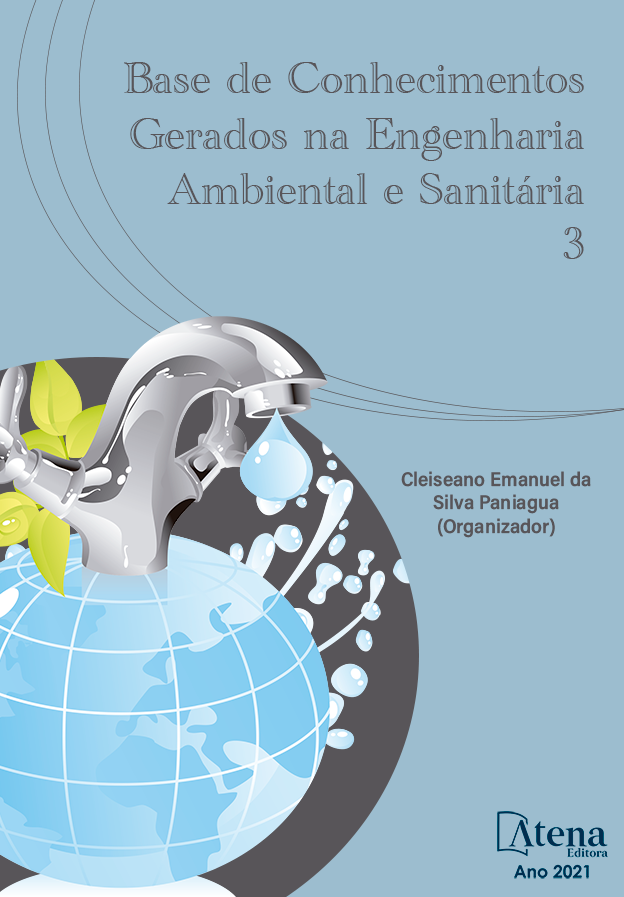
GERENCIAMENTO DE RESÍDUOS DE SERVIÇOS DE SAÚDE: ESTUDO DE CASO EM UMA INSTITUIÇÃO DE ENSINO SUPERIOR
Dentre todos os tipos de resíduos gerados pelas atividades humanas encontram-se os Resíduos de Serviços de Saúde que possuem diferentes características, muitas perigosas, e podem causar danos à saúde humana e ao ambiente. O presente estudo teve como objetivo elaborar um diagnóstico referente ao gerenciamento dos resíduos utilizados em atividades de ensino e pesquisa, em laboratórios e outros serviços, em uma Instituição de Ensino Superior. Nesta pesquisa, de caráter descritivo e exploratório, foi realizado um levantamento a partir da aplicação de questionário aos responsáveis pelos laboratórios e serviços da Universidade, com a participação de 41 sujeitos que correspondiam a 40,2 % dos laboratórios e serviços da instituição, responsáveis por gerar esses tipos de resíduos. Os dados indicaram que os sujeitos possuíam maior conhecimento em relação ao manejo interno dos resíduos gerados, apresentando pouco conhecimento sobre o manejo externo. Grande parte dos sujeitos informou que em seus laboratórios e serviços eram gerados mais de um tipo de resíduos, sendo que o mais frequentemente encontrado correspondia ao resíduo químico, indicado por 83 % dos sujeitos. Outro fator importante ocorreu em relação à segregação, sendo que a maioria dos sujeitos informou que é realizada no local de sua geração, encontrando-se em conformidade com a legislação vigente. Em relação ao manejo externo, foi verificado entre os sujeitos participantes, que a maioria não tinha conhecimento sobre como era realizada a coleta, transporte, tratamento e disposição final dos residuos gerados em seus locais de trabalho. As Instituições de Ensino Superior exercem um papel fundamental de responsabilidade ambiental, e seu comprometimento deve estar presente desde a minimização do volume gerado até a forma de destinação final. É fundamental o conhecimento de todas fases de manejo, sendo que o diagnóstico atualizado pode ser uma ferramenta essencial para fornecer subsidios para a tomada de decisões e fundamentar a elaboração de um Plano de Gerenciamento de Resíduos para a instituição.
GERENCIAMENTO DE RESÍDUOS DE SERVIÇOS DE SAÚDE: ESTUDO DE CASO EM UMA INSTITUIÇÃO DE ENSINO SUPERIOR
-
DOI: 10.22533/at.ed.7452108043
-
Palavras-chave: Gestão de Resíduos, Instituição de Ensino Superior, Resíduos Perigosos.
-
Keywords: Waste Management, Higher Education Institutions, Hazardous Waste
-
Abstract:
Among all types of waste generated by human activities is the Health Services Waste that has different characteristics, which may be dangerous, and can cause risks to human health and to the environment. The present study aimed to elaborate a diagnosis regarding the management of waste used in teaching and research activities, in laboratories and other services, in a Higher Education Institution. In this descriptive and exploratory study, a survey was carried out based on the application of a questionnaire to those responsible for the laboratories and services of the University, with the participation of 41 people that corresponded to 40.2% of the laboratories and services of the institution responsible for generating these types of waste. The data indicated that those responsible for the waste had greater knowledge regarding the internal management of the waste generated, presenting little knowledge about the external management. Most of them reported that in their laboratories and services more than one type of waste was generated, and the most frequently found correspond to the chemical residue, indicated by 83% of those interviewed. Another important factor occurred in relation to segregation, and the majority of the subjects reported that it is performed at the place of the waste generation, being in compliance with the legislation. These institutions play a fundamental role of environmental responsibility, and their commitment must be present from the minimization of the volume generated to the final destination. Knowledge of all phases of management is fundamental, and the updated diagnosis can be an important tool to provide subsidies and to base the elaboration of a Waste Management Plan for the institution.
-
Número de páginas: 15
- Mariane Viviurka Fernandes
- Silvano da Silva Coutinho
- Silvia Carla da Silva André Uehara
- Adriana Aparecida Mendes
- Maiara Veiga Coutinho
- Tatiane Bonametti Veiga


